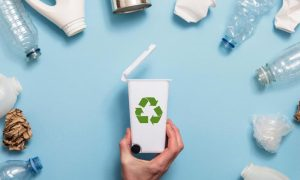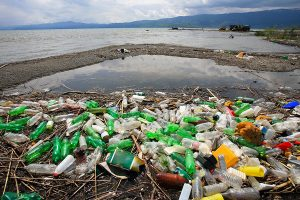News
In recent years, plastic pollution has become a major issue for the environment. Plastic can be seen in every aspect of our lives, and it is a sad fact that there is no place in the world that is not contaminated by plastic, from the Antarctic to the Himalayas and the Marianas Trench. In seafood, in the air, in water, these microplastics will enter the human body through various ways and affect human health. The management and control of plastics has become a challenge for all countries in the world, so what are the new changes in global dynamics?

French
In recent years, France has stepped up its efforts to "limit plastic" by adopting the Law against Waste for a Circular Economy, which aims to gradually reduce the use of single-use plastic products, promote the development of Alternative and reusable materials, prohibit single-use plastic packaging, and promote packaging-free sales, in order to promote the realization of the country's ecological transformation goals. On June 21, 2023, French Decree 2023-478 was officially published in the Official Gazette (JORF), which, among other things, regulates the ban on the sale of fruits and vegetables packaged in plastic - the decree stipulates that, in addition to the exempted 29 types of fruits and vegetables, as well as ripe fruits (i.e., fruits that are labeled on the packaging as being at full ripeness when they are The decree prohibits the sale of fruits and vegetables wrapped in plastic, except for 29 exempted fruits, vegetables and ripe fruits (i.e., fruits that are indicated on the package as being sold to the final consumer when fully ripe), and it comes into force on July 1, 2023
New Zealand
New Zealand has taken a new step towards banning plastic bags since last October's ban, announcing another round of plastic banning. Starting July 1, Local time, New Zealand banned shopping malls and supermarkets from providing or selling single-use plastic food bags and other products, and businesses that violate this new rule will be subject to high fines.

Austria
In the fight to reduce waste and promote a circular economy, the Austrian government is revising two measures that directly affect the retail sector. From January 2024, supermarkets will be obliged to provide reusable packaging for 10 to 15 percent of the total volume of beer, water, juices, milk and soft drinks, with 25 cents added to fixed plastic bottles and cans. In addition, to meet the EU target, then a deposit system for plastic bottles and cans will be introduced in 2025. This provides for the collection of 77% of single-use plastic bottles by 2025 and even 90% by 2029. 110 million euros for the switch to single-use deposits and reusable bottles.
Netherlands.
The Dutch government has announced that from July 1, 2023, businesses will be required to provide disposable plastic cups and takeaway food packaging for a fee and offer reusable alternatives, according to the document announcement of the New Regulations for Disposable Plastic Cups and Containers. And from January 1, 2024, the Netherlands will ban the use of single-use plastic food packaging for dine-in. The scope of application of this initiative includes:
(1) Disposable plastic cups: the regulation applies to all uses of disposable plastic cups, including cups partly made of plastic, e.g. plastic-coated.
(2) Single-use food packaging: The regulations apply only to packaging for ready-to-eat food where the packaging is made entirely of plastic. (Also applies to biodegradable plastics)
China
Of course, China, as an important supporter and advocate of plastic pollution control, has also made an important push in this area: Henan Province has recently issued the "Provisions on Prohibition of Non-Biodegradable Disposable Plastic Products in Henan Province (Draft)", which prohibits and restricts the production, sale and use of non-biodegradable disposable plastic products and their related activities. In addition, it will also refine the prohibition and restriction of non-degradable disposable plastic products standard, the prohibition and restriction of non-degradable disposable plastic products to implement list management. Start from small things, refuse to use disposable plastic tableware, choose to use more green and environmentally friendly alternative plastic tableware, etc., low-carbon travel, bring your own shopping bags ......

 +86 189 2452 1063
+86 189 2452 1063 s-dzhiyuan@163.com
s-dzhiyuan@163.com 18924521063
18924521063




Online Message

Follow Us


Top